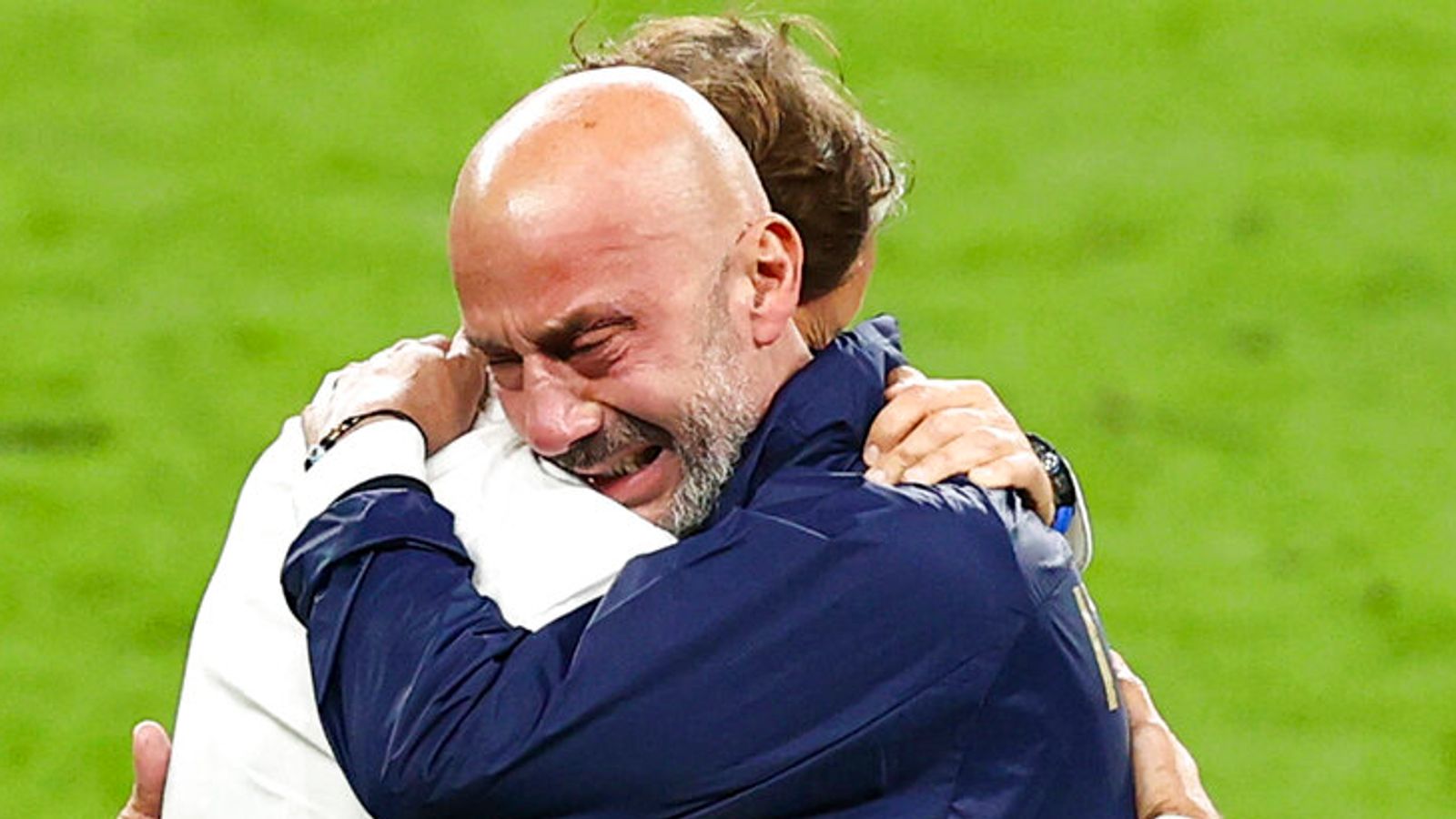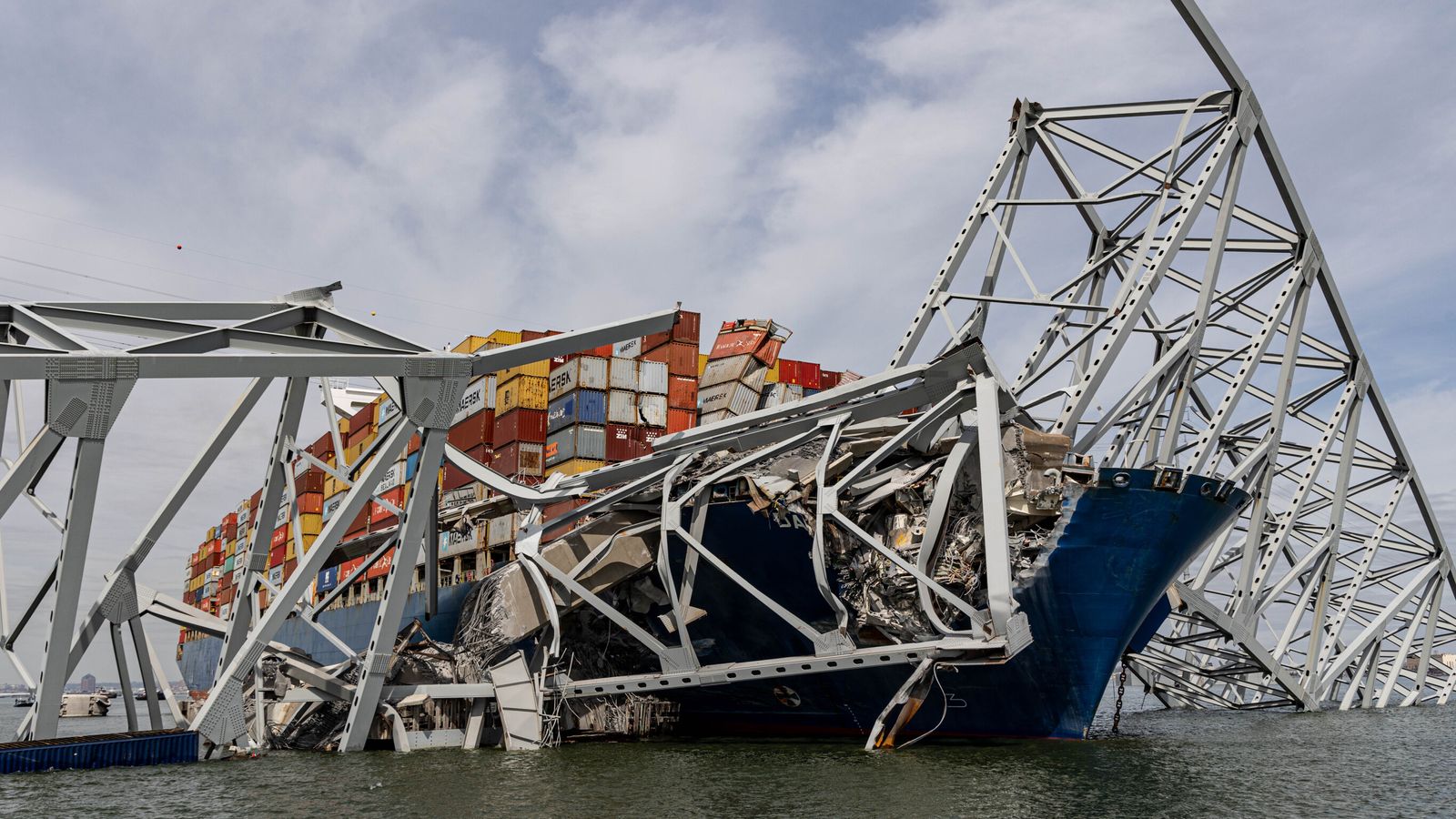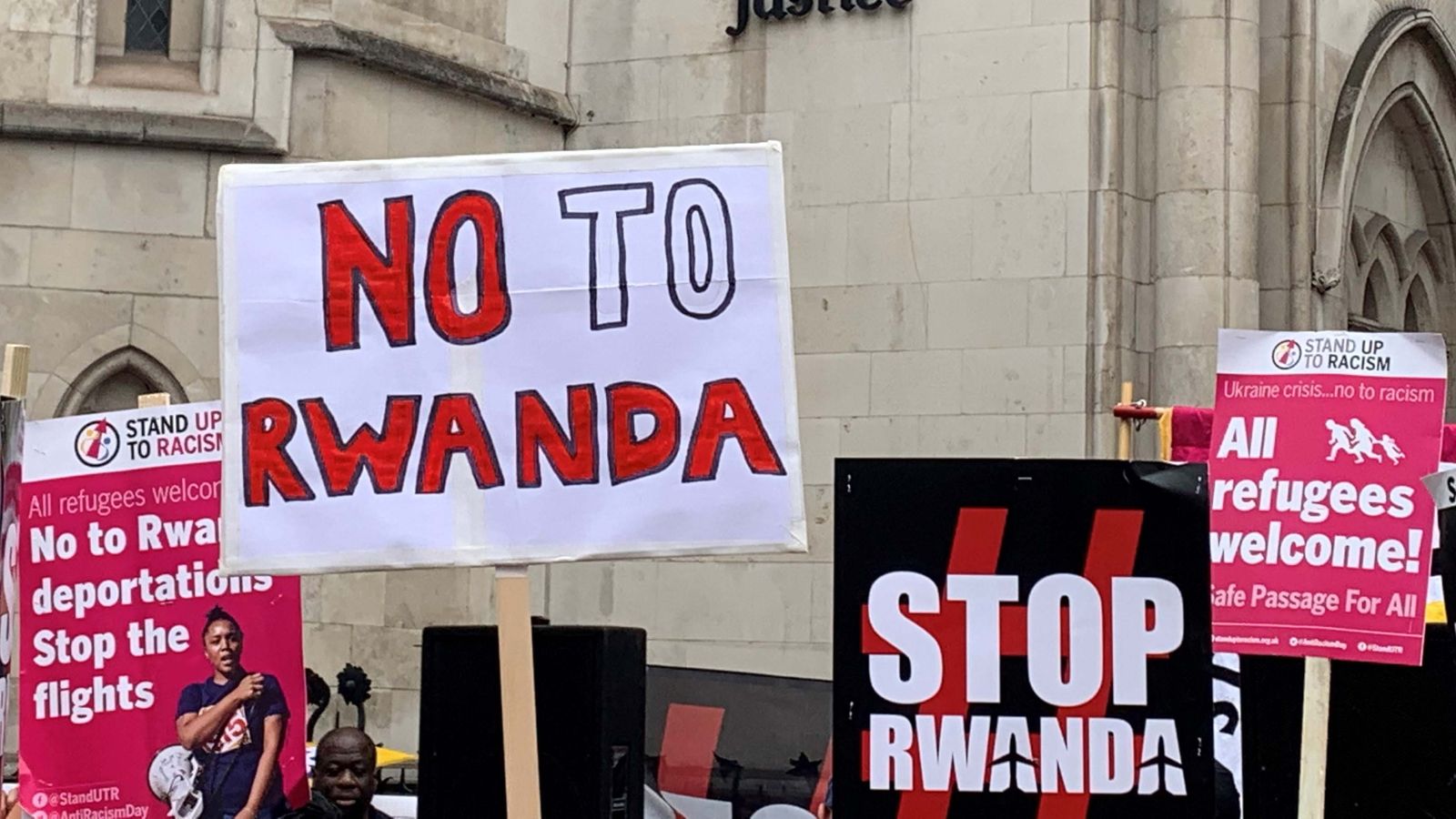Vladimir Putin’s annual Navy Day parade looks impressive from the banks of St Petersburg’s Neva river; it looks even better on state TV.
No expense spared when it comes to showing the people of Russia quite how big and shiny their navy and armed forces are.
Think back to April though and the loss of the Moskva – the flagship warship of Russia’s Black Sea fleet.
A direct hit Ukraine’s defence ministry said; a fire onboard according to Russia.
A significant blow both to Russia’s prestige and its Black Sea capabilities. Nor is it the only loss for the Black Sea fleet, against a Ukrainian navy massively diminished since the annexation of Crimea and largely barricaded inside its ports, just like its commercial shipping.
The Black Sea blockade has been a major strategic win for Russia, forcing Ukraine to mine itself in.
Stasis at Ukraine’s ports has left huge swathes of the world without grain, most significantly, but also fertiliser, sunflower oil and a host of other exports which would have brought much needed cash into the Ukrainian economy.
Despite the grain deal struck in Istanbul, still no ship has set sail. It is an indication of the profound lack of faith in Russia’s intentions, especially after its missile strike on the port of Odesa with the ink on the deal barely dry.
Today Putin promised more big guns.
The long touted Tsirkon hypersonic missile will be delivered to Russia’s armed forces in the coming months.
The Admiral Gorshkov frigate which has already test-fired the missile will be its first recipient. According to Putin, the Tsirkon missile systems will have “no equal in the world”.
The crowds along Palace Embankment may not have taken that in particularly but they loved the parade and aerial flyby.
“Did you hear the people cheering when Putin came out?”, said Janna, whose dislike of all things British was palpable. “I hope you heard, I don’t think you have such a strong leader”.
“I believe that you have set us against each other, two brotherly peoples”, she said pointing her finger menacingly. “I hope you can understand what the Russian spirit is when you’re here”.
Natalia in a ‘Z’ T-shirt, merchandise which is ever more frequent to see, told me she was sure of victory. When I asked her what she meant by victory, she said “Victory over fascism, over the Nazis, for peace!”.
“What does the word ‘Nazi’ mean to you?”, I ask.
“People who are only for their own nation, and do not accept others”, is the answer.
That is a broad definition. It is no wonder it has caught the imagination of so many in Russia. It is a world removed from the notion of death camps and the appalling atrocities of Nazi Germany.
But not everyone is so sure of their president.
Subscribe to the Ukraine War Diaries on Apple Podcasts, Google Podcasts, Spotify and Spreaker
“Denazification was fair for Hitler but there is no Nazism in Ukraine”, says Oleg.
“This war is Putin’s last attack on the world. The personal attack of a mad dictator against the whole world because the whole civilised world is now against this outrage that is happening”.
A lone voice in today’s crowd. Perhaps too, in today’s Russia.
But there may be many more like Oleg who don’t attend events like these but who feel deeply uncomfortable with the events of the past five months, their reservations overwhelmed by the mighty force of patriotism which Vladimir Putin whips up so well.




